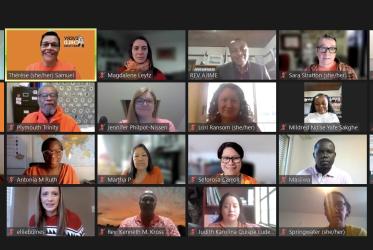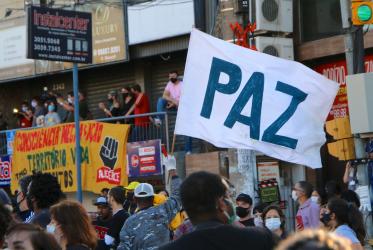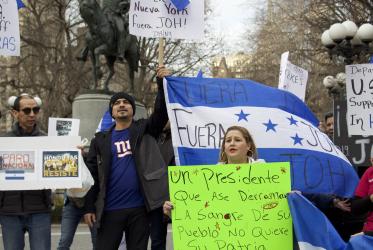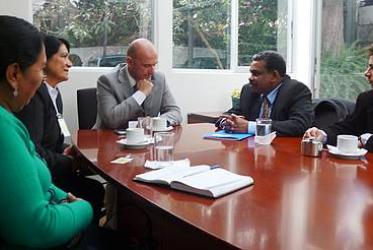Displaying 1 - 10 of 10
Religious leaders as agents of peace in the Americas
02 March 2016
Guatemala struggles for democratic reforms, transitional justice
12 December 2012
Ecumenical leaders bring concerns about Honduras to Washington
29 October 2009









